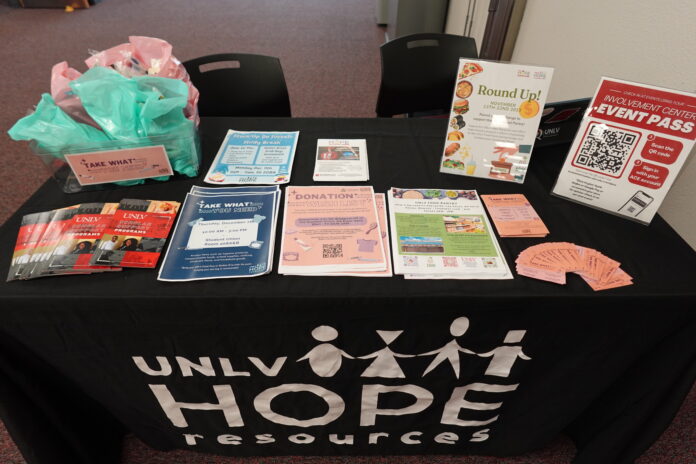Student Learning and Leadership (SLL) was going to host a documentary-watching event on Nov. 15 to educate students about homelessness. Even though technical difficulties stopped them, program coordinators were still able to give a talk and discussion with a free lunch in honor of Hunger and Homelessness Awareness Week.
The documentary is called “The Invisible Class,” released in 2020. Technical difficulties frequently interrupted the documentary, and the event coordinators had to stop it 20 minutes in. Even after 20 minutes, attendees learned about the increasing amount of laws essentially criminalizing homelessness.
The documentary introduced the term “chronically homeless,” which refers to someone who has been consistently homeless for a year or more, and it is the stereotype of homeless people that the general public is familiar with.Chronic homeless people make up 24% of the overall homeless population and usually struggle with addiction, mental illness or both.
“It’s really sad seeing this,” said freshman Jennica Samarawickrama, referring to the part of the documentary where the interviewer candidly speaks to a drunk and unstable-looking homeless person on the street. “I feel sympathy for them. It was really emotional when he said that all he wants is his family to be alive and give him hugs and love.”
After the documentary stopped, Program Coordinator of Hope Scholars Anabel Chavva started the discussion by saying that Nevada is ranked third in youth homelessness across the nation.
“If you know a homeless student on campus, you can send them to us at Hope Scholars and Hope Resources,” Chavva said. “We can direct them to the resources they need and work with them to make sure their basic needs are met.”
Program Coordinator of Hope Resources Ash Xander Quinn spoke about SLL’s biggest event, “Take What You Need.” The event provides basic hygiene products to homeless students on campus and was started in 2019. They said that attendance over the years has grown from 100 to over 300 students.
“The fact that numbers are increasing means that we’re destigmatizing asking for support,” said Quinn.
Other discussion topics included more facts about student homelessness and how to support homeless people on an individual level as well as on a grander scale.
“It’s because of my WMST 113 class that I came here to learn more about homelessness,” said Samarawickrama. “My group had done a presentation on housing inequality and wanted to learn more about the life of a homeless person.”
Hope Resources will be rebranded as the Basic Needs Program next semester. For more information on student homelessness or to get support as a homeless student, contact Chavva at anabel.chavva@unlv.edu or Quinn at ash.quinn@unlv.edu.

